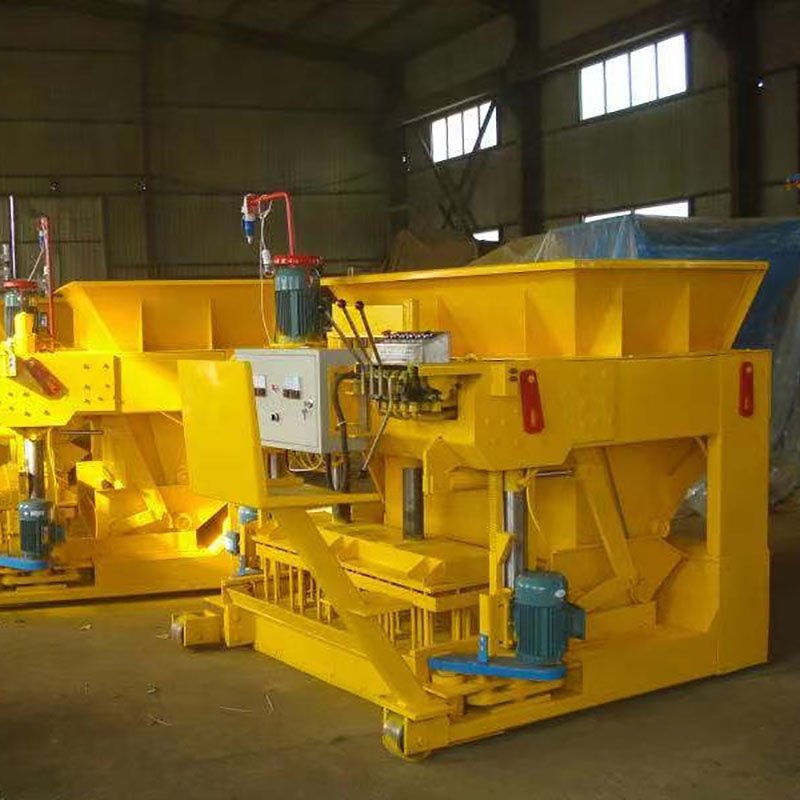
Image source:Aiwei block machine
Introduction
Solid block machines are invaluable assets in the construction industry, playing a crucial role in producing the building blocks of various structures. To ensure the longevity and efficiency of these machines, regular maintenance is essential. This article delves into the world of solid block machine maintenance, offering valuable insights into best practices, routine checks, and expert tips to keep your equipment running smoothly for years to come.
The Significance of Maintenance
Maintenance is often regarded as the lifeblood of machinery. For solid block machines, it is no different. Proper maintenance not only prolongs the machine’s lifespan but also ensures consistent block quality, reduces downtime, and minimizes repair costs. Neglecting maintenance can lead to breakdowns, production bottlenecks, and, ultimately, financial losses.
Essential Maintenance Practices
a. Cleaning and Lubrication: Regularly cleaning the machine’s components, such as the mold, conveyor belts, and hydraulic systems, helps prevent the buildup of debris and ensures smooth operation. Lubrication of moving parts, including bearings and chains, is vital to reduce friction and wear.
b. Inspection and Replacement: Routine inspections of critical components like molds, cylinders, and seals are necessary to identify wear and tear. Timely replacement of worn parts prevents costly breakdowns and ensures block quality.
c. Hydraulic System Maintenance: The hydraulic system is the heart of a solid block machine. Regularly check for leaks, ensure proper pressure, and change hydraulic oil as recommended by the manufacturer.
d. Electrical System Checks: Inspect the electrical system for loose connections, damaged wires, and worn-out components. Faulty electrical systems can lead to operational disruptions and safety hazards.
e. Vibration Analysis: Utilize vibration analysis tools to monitor the machine’s condition. Unusual vibrations can indicate misalignments or imbalances that need attention.
f. Dust and Debris Control: Implement dust and debris control measures to prevent the accumulation of concrete dust, which can affect machine performance and worker health.
Maintenance Schedule
Establish a regular maintenance schedule that outlines tasks, responsible individuals, and frequency. Common maintenance schedules include daily, weekly, monthly, and annual checks. Adhering to this schedule ensures that no critical maintenance task is overlooked.
Training and Skill Development
Invest in training programs for machine operators and maintenance personnel. Well-trained staff can perform routine checks, identify issues early, and conduct basic maintenance tasks effectively. Training programs can be provided by the machine manufacturer or specialized training institutions.
Troubleshooting and Problem-Solving
Develop a troubleshooting guide that lists common machine issues, possible causes, and solutions. This resource can help maintenance personnel diagnose problems quickly and implement solutions, minimizing downtime.
Predictive Maintenance
Consider implementing predictive maintenance techniques, such as vibration analysis, thermography, and oil analysis. These methods can detect potential issues before they escalate, allowing for proactive maintenance.
Spare Parts Management
Maintain an inventory of essential spare parts and components to ensure quick replacements when needed. Collaborate with the machine manufacturer or supplier to identify critical spare parts.
Manufacturer’s Guidelines
Always follow the manufacturer’s maintenance guidelines and recommendations. These guidelines are tailored to the specific machine model and can help optimize performance and longevity.
Documenting Maintenance
Maintain detailed records of all maintenance activities, including dates, tasks performed, and any issues encountered. This documentation can aid in tracking the machine’s history and identifying recurring problems.
Conclusion
Solid block machine maintenance is a fundamental aspect of ensuring the reliability and longevity of these essential construction machines. By adhering to best practices, establishing regular maintenance schedules, investing in training, and implementing predictive maintenance techniques, businesses can maximize the return on their investment and maintain consistent block quality. Remember, a well-maintained solid block machine not only extends its lifespan but also contributes to the overall efficiency and success of construction projects.
